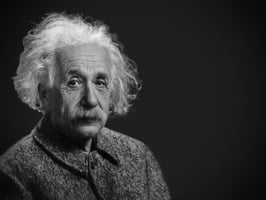When we think of travel, our minds often wander to famous landmarks, beautiful landscapes, and...
Words That Changed History: Iconic Speeches Analyzed

Throughout history, words have held the power to inspire revolutions, change minds, and shape the course of entire nations. The speeches that echo through time often do so because they capture the essence of a moment, offering guidance, hope, or a rallying cry in times of uncertainty. These "words that changed history" are more than just a collection of sentences; they are symbols of the human spirit's resilience, courage, and the desire for a better world. Let's delve into some of the most iconic speeches ever delivered and analyze why they remain so impactful today.
The Power of Persuasion: Winston Churchill’s “We Shall Fight on the Beaches”
One cannot discuss influential speeches without mentioning Winston Churchill’s rousing address to the British people during World War II. Delivered on June 4, 1940, Churchill’s “We Shall Fight on the Beaches” speech was a beacon of defiance and resilience. At a time when Britain stood alone against the Nazi threat, Churchill’s words offered a blend of realism and unyielding determination.
What made this speech particularly powerful was Churchill’s ability to acknowledge the grim reality of the situation while simultaneously inspiring hope. His repetition of “We shall fight” hammered home the resolve of a nation refusing to surrender. The speech was not just a statement of intent but a call to arms, uniting the British people under the banner of resistance. This speech is a testament to how the right words, delivered at the right time, can galvanize a nation.
The Dream of Equality: Martin Luther King Jr.’s “I Have a Dream”
When Martin Luther King Jr. stood on the steps of the Lincoln Memorial on August 28, 1963, he delivered a speech that would resonate for generations. The “I Have a Dream” speech is not just one of the most iconic moments in the Civil Rights Movement; it is one of the most powerful orations in history. King's speech was a masterpiece of rhetoric, weaving together the ideals of the American dream with the harsh realities of racial inequality.
The speech’s most famous passage, where King dreams of a future where his children “will not be judged by the color of their skin but by the content of their character,” remains a profound statement on human rights. King’s use of repetition, imagery, and emotional appeal made this speech a rallying cry for equality. It is a perfect example of how words can ignite a movement and inspire lasting change.
A Call for Freedom: Nelson Mandela’s “I Am Prepared to Die”
In 1964, Nelson Mandela stood in a courtroom and delivered a speech that would become a defining moment in the struggle against apartheid in South Africa. His speech, “I Am Prepared to Die,” was a powerful declaration of his commitment to the cause of freedom, even at the cost of his life. Mandela’s words were not just a defense against the charges he faced; they were a manifesto for a free and just society.
Mandela’s calm and measured tone, combined with the gravity of his message, conveyed his unshakable resolve. The speech laid bare the injustices of apartheid and articulated a vision for a democratic South Africa. Mandela’s words were a turning point in the anti-apartheid movement, proving that sometimes, the most powerful weapon is a well-crafted argument delivered with conviction.
The Call to Service: John F. Kennedy’s Inaugural Address
John F. Kennedy’s inaugural address on January 20, 1961, is another speech that has left an indelible mark on history. His call to action, encapsulated in the famous line, “Ask not what your country can do for you—ask what you can do for your country,” challenged Americans to think beyond themselves and work towards the greater good.
Kennedy’s speech was a blend of idealism and pragmatism, urging a new generation to take up the mantle of leadership in a rapidly changing world. His words spoke to the importance of civic duty and the need for collective effort in tackling global challenges. The speech is a reminder that leadership is not just about power but about inspiring others to join in the pursuit of a common goal.
Conclusion: The Enduring Impact of Iconic Speeches
These iconic speeches remind us that words have the power to shape the world. Whether it’s rallying a nation, fighting for equality, standing up to injustice, or calling for collective action, the right words at the right time can change the course of history. The "words that changed history" continue to inspire us because they speak to the universal values of courage, justice, and hope. They remind us of the potential within each of us to make a difference, to be a voice for change, and to leave our mark on the world.
For those interested in delving deeper into these monumental moments, exploring the best speeches in history offers a unique opportunity to understand the power of words and how they have shaped our world. Whether you're looking to be inspired, educated, or simply moved, these speeches stand as a testament to the enduring power of oratory.


